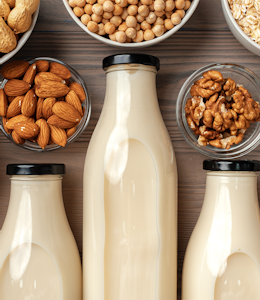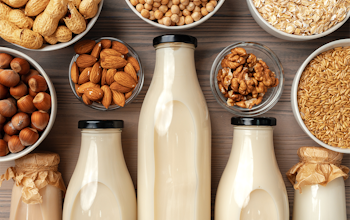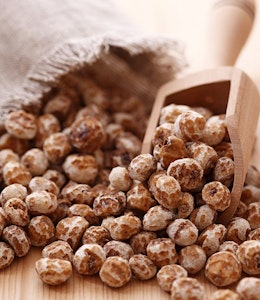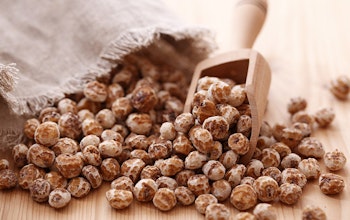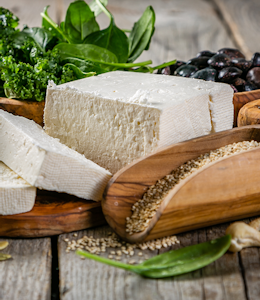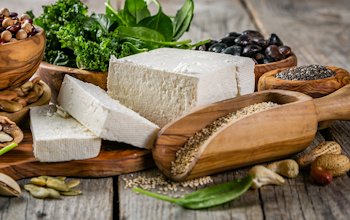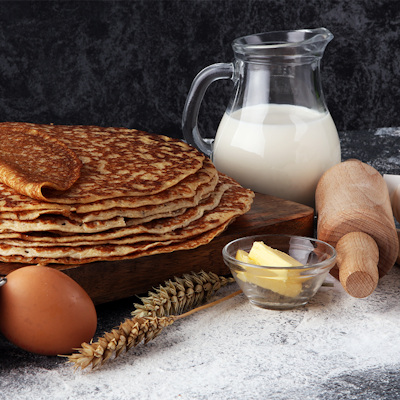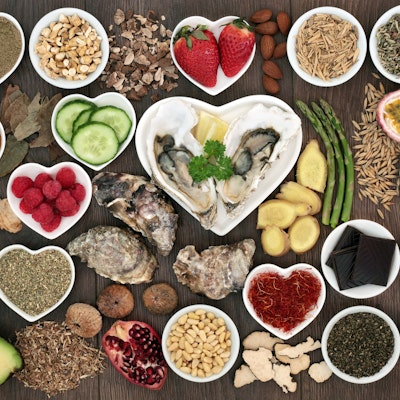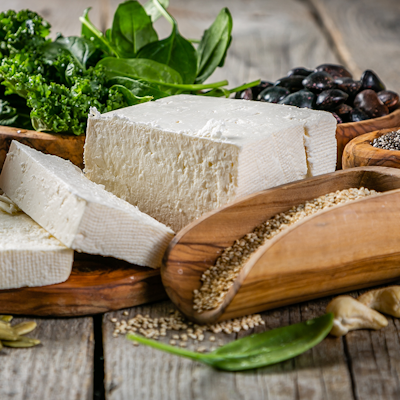What are substitutes for common allergens?
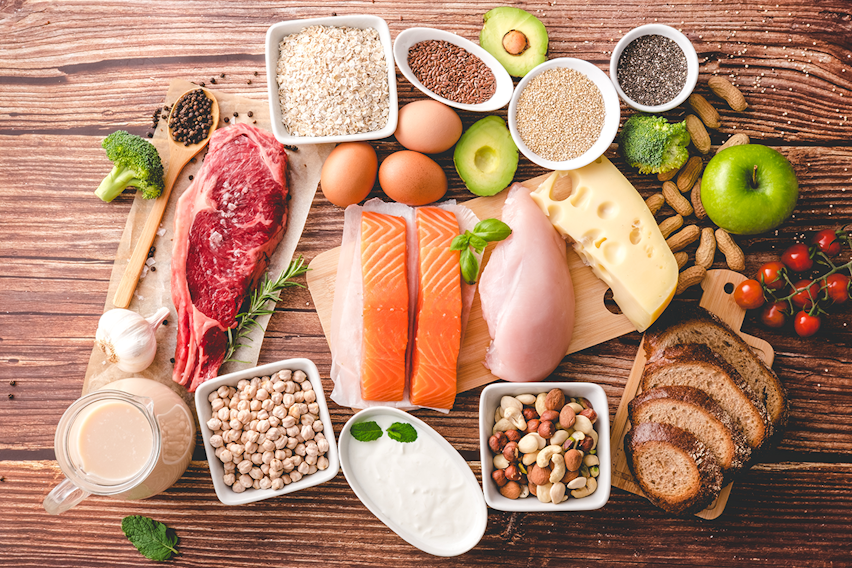
Avoiding the 14 major food allergens can be tough - Peanuts, Cereals containing Gluten and Soya are all major ingredients in many different cuisines.
But people with allergies shouldn’t have to miss out, and that’s why we’ve put together this list of alternatives for the most common allergens. Milk substitutes for allergies, nut alternatives for allergies - we’ve got them all, right this way...
Celery
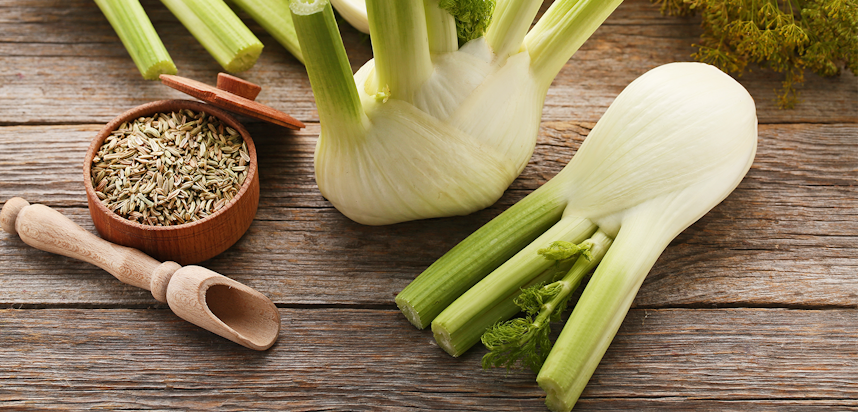
Fennel
Fennel bulbs have a similar flavour to Celery, and a crunchy texture that makes them a good Celery replacement in dishes like salads.
Jicama
Also known as "the Mexican turnip", jicama is a good substitute for those who dislike Celery as well as those with an allergy, as it shares the crunchy texture but has a much milder flavour.
Bok Choi
The bottom part of a Bok Choi can be used instead of Celery as an ingredient in soup, stews and sauces. It can also replace Celery in the common flavour base mirepoix, alongside carrots and onions.
Cucumber
Like Celery, cucumber has a high water content and a crunchy texture, which makes it a good choice for smoothies and salads.
Read our deep dive into a Celery allergy here.
Cereals containing Gluten
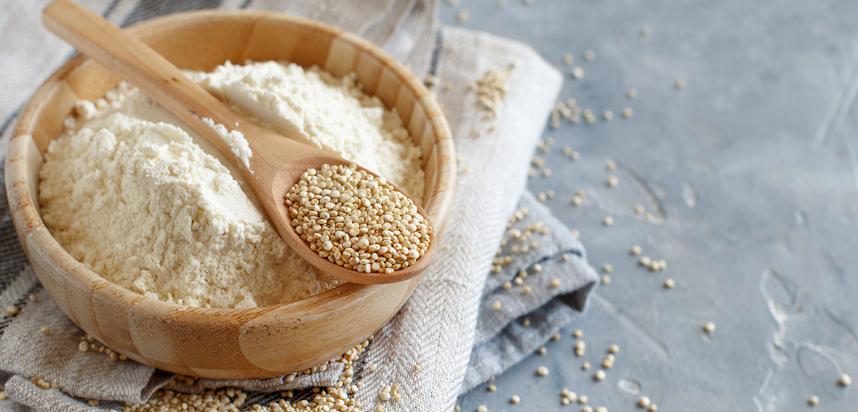
Gluten-free flour
It’s now easier than ever to purchase gluten-free flour that can be used as a direct wheat flour replacement. Coconut flour, rice flour, flax flour, millet and corn flour are all widely available examples of gluten-free flour.
Xanthan gum and guar gum
Xanthan gum and guar gum can both be used in place of wheat (or other cereals) flours when baking.
Quinoa
The protein-rich grain quinoa makes a great alternative to pearl barley in stews, salads and other dishes.
Chia seeds
Chia seeds can be used in place of oats in recipes that call for them, and can be soaked or toasted in the same way.
Brown rice
Brown rice is a complex carbohydrate that can be used instead of wholegrain cereals - especially oats - in some recipes.
You may also be interested in…
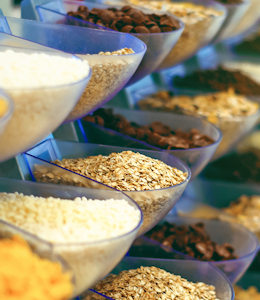
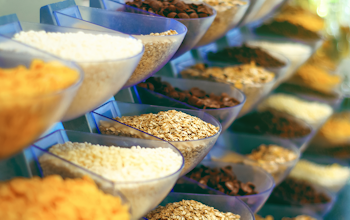
You may also be interested in…
14 Allergens: The different Cereals containing Gluten
ReadRead our deep dive into a Cereals containing Gluten allergy here.
Crustaceans
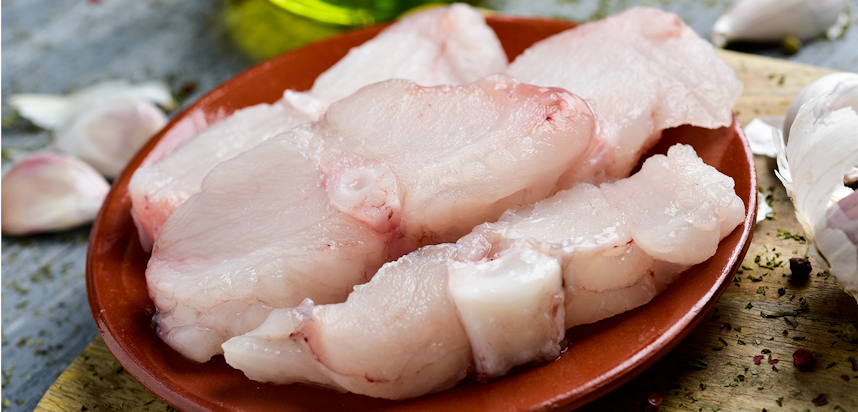
Kosher surimi
Kosher surimi is a type of imitation crab paste that is safe for those with a Crustacean allergy, as it does not contain any shellfish.
Many people (reasonably) think imitation crab is an alternative to real crab - however, that does not mean it is safe for those with a Crustacean or Mollusc allergy. Imitation crab is made from a type of pulverised fish paste called surimi, which may contain traces of Crustaceans and Molluscs in addition to Fish.
Monkfish
Monkfish has a similar meaty flavour and texture to lobster, and can be used as a lobster substitute.
Mushrooms
Some people find that mushrooms have a similar texture to the meat of Crustaceans such as crabs, lobsters and crayfish.
There are also many shellfish-free, vegan versions of crab and shrimp on the market.
Read our deep dive into a Crustacean allergy here.
Eggs
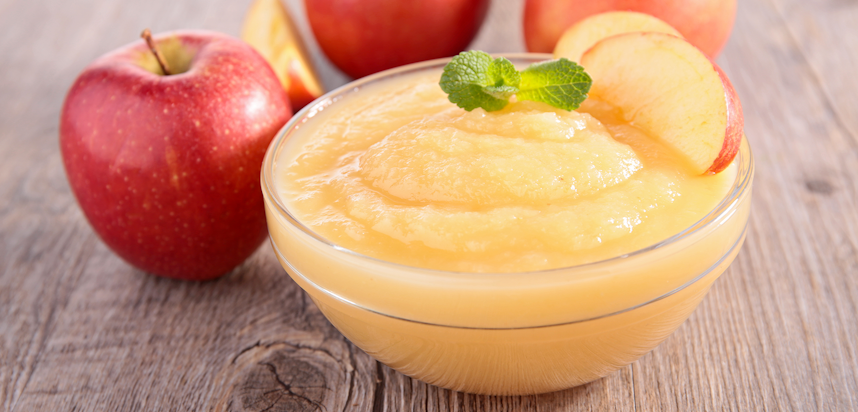
Applesauce or mashed banana
Fruit pastes like applesauce and mashed banana can be used in place of Eggs in recipes for baked goods as they will perform the same function - acting as a binding agent.
Nut butters
Nut butters such as those made from cashews or almonds can also be used in the same way as Eggs (as an emulsifier or binder in baked goods), but it should be noted that they have a distinctive flavour that will impact the final dish.
Silken tofu
Silken tofu is a form of tofu especially well-suited to baking, and can be used instead of Eggs in recipes for cakes and similar products.
Ground flaxseeds
If you whisk one tablespoon of flaxseeds with 3 tablespoons of water until absorbed and thickened the mixture will have a similar consistency and properties to Egg when used as an ingredient for cooking or baking.
Egg substitutes
There are several synthetic Eggs substitutes, including Ener-G egg replacer, Loprofin egg replacer, No-egg replacer and Loprofin egg white replacer.
Read our deep dive into an Egg allergy here.
What are the 14 major food allergens?
Pre-packed food sold in the UK, and the rest of the European Union, must clearly indicate on the label if it contains any of the 14 major food allergens.
These are:
Fish
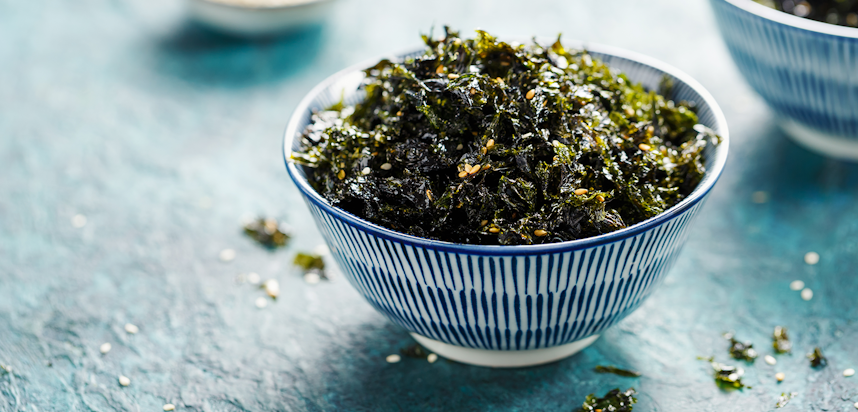
Scallops and prawns
As non-Fish seafoods, things like scallops and prawns have a fishy taste and a Fish-like texture that makes them a good direct alternative. It should be noted, however, that shellfish are also major allergens and there may be cross-contamination or cross-reactivity with Fish.
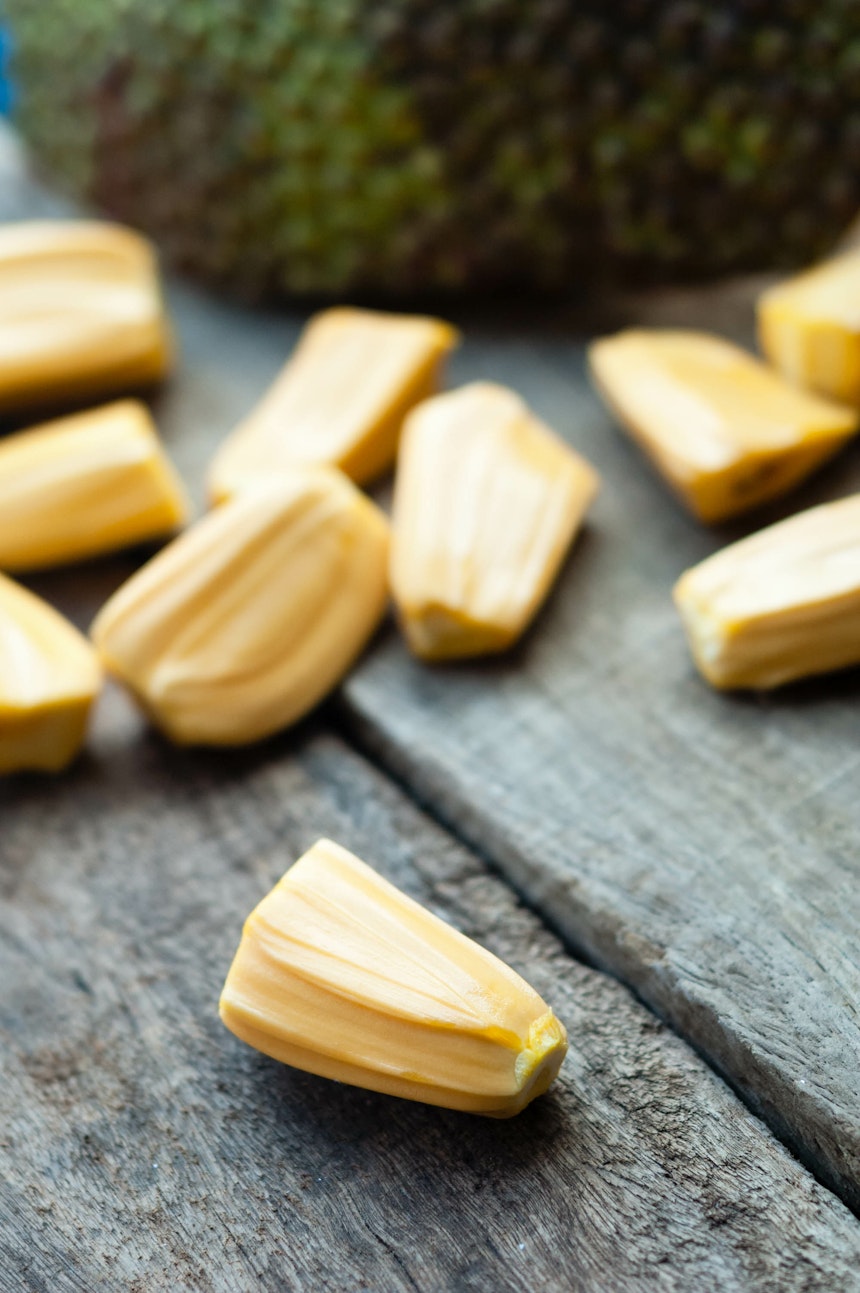
Tofu
Like white fish, tofu has a mild, subtle flavour and can be cooked or prepared in many different ways to give it a different texture.
Tofu makes an excellent alternative for filleted fish served in a sauce.
Jackfruit
Jackfruit can be prepared to have the same texture as flaky fish, and can be used as a substitute for the likes of cod, haddock, snapper and bass.
Seitan
Seitan - also known as "wheat meat", can be used in place of filleted white fish, as it has a similar subtle flavour and texture.
Seaweed
Dried seaweed can be added to vegetable stock and used in stews, sauces and soups as an alternative to fish stock, whilst seaweed or algae can be added to dishes that require a "fishy" flavour, without actually using Fish or fish sauce.
Dried mushrooms
Dried mushrooms can be used to make a stock that has a similar flavour profile to fish stock.
Carrots
When cut thinly and marinated in oil, vinegar, algae and liquid smoke, carrots can stand in for salmon.
Tomatoes
Because of their colour, tomatoes can be peeled, chopped and cooked to resemble tuna - though they will not taste the same.
There are also many vegan Fish substitutes on the market.
Read our deep dive into a Fish allergy here.
Lupin
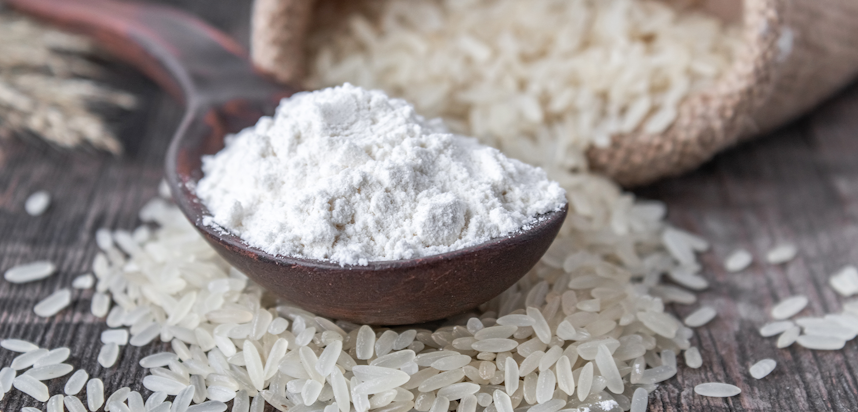
Rice flour
Rice flour can be used as an alternative to Lupin flour when cooking and baking, and does not contain any of the 14 major food allergens.
Peanuts
Peanuts are a suitable substitute for Lupin in bean form.
Very few Northern Europe or North American dishes contain Lupin - in fact, Lupin flour is often used as an alternative to wheat flour, as it is safe for those with a Gluten intolerance or allergy to Cereals containing Gluten to eat.
Read our deep dive into a Lupin allergy here.
Milk
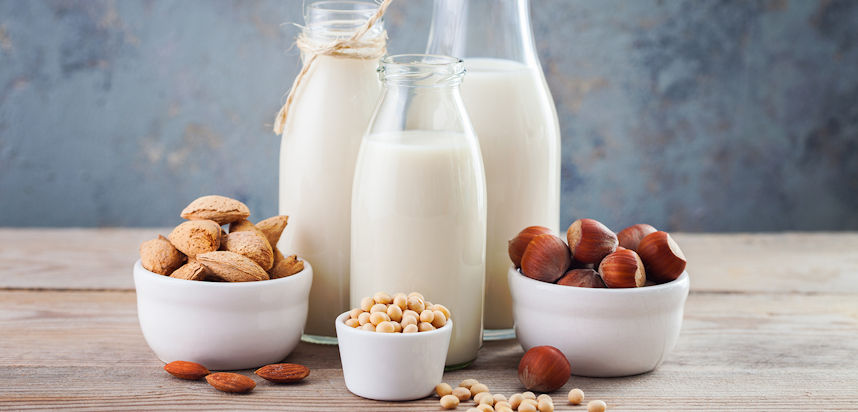
Soy Milk
Soy milk is generally considered a good low-calorie option for those watching their weight and avoiding Milk. It can be used in tea, and on cereal.
Almond Milk
Almond milk is full of healthy, unsaturated fat and can be used in smoothies and baking in place of milk.
Rice Milk
Rice milk contains the same amount of vitamin D and calcium as Milk, and works well as a standalone drink as well as over cereal and as an ingredient and baked goods. It is one of the only plant-based milks to not include any allergen ingredients.
Coconut Milk
Coconut milk is a good substitute for Milk when cooking and baking, as it is creamy and thick, with a slight sweetness.
Hemp Milk
Hemp milk is made from water and shelled hemp seeds, and can be used in place of Milk to make foods such as porridge.
Plant-based butter
There are many plant-based butters on the market, such as olive oil spread, coconut butter and avocado butter.
Margarine
Margarine is a butter-like spread primarily made of vegetable oils, emulsifiers and other additives. Whilst some varieties are suitable for those with a Milk allergy, others contain traces of Milk or other dairy products. It is important to check the label to be sure of the ingredients.
Vegan cheese
There are many different vegan cheeses, made from ingredients such as soya, nuts and seeds, that are widely available.
Read our deep dive into a Milk allergy here.
Molluscs
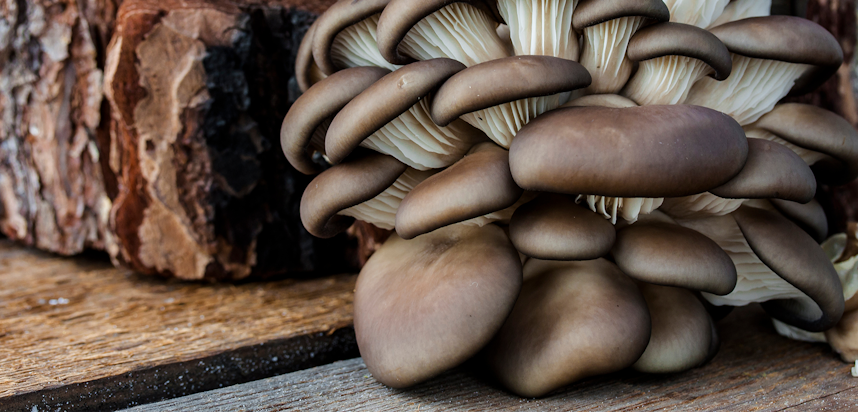
Teriyaki
The Japanese sauce teriyaki, made with ingredients like soy sauce, brown sugar and sake, has a similar consistency to oyster sauce.
Worcestershire sauce
Worcestershire sauce (which it should be noted is made from anchovies, a type of Fish) can also be used as a substitute for oyster sauce when cooking, due to the similar umami flavour.
Oyster mushrooms
Oyster mushrooms make a great alternative to scallops for those following a vegan diet or with a shellfish allergy. Not only do they have a delicate seafood flavour, they can be cut and arranged to resemble scallops.
Read our deep dive into a Mollusc allergy here.
You may also be interested in…
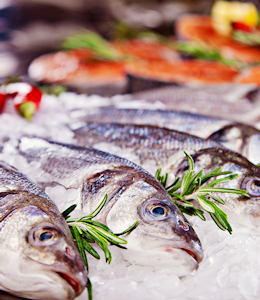

You may also be interested in…
Food Safety Cheat Sheet: Fish and Shellfish Guidance
ReadMustard
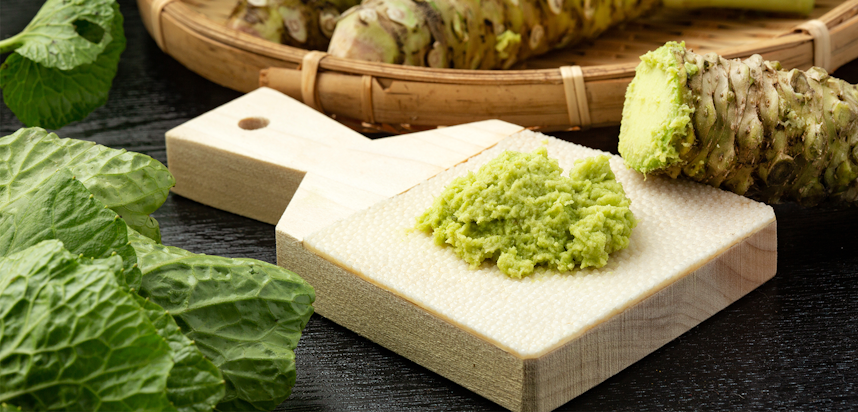
Horseradish (or wasabi)
Both horseradish and wasabi have a similar spicy flavour to Mustard varieties such as Dijon and English Mustard.
Since Mustard is most commonly used to add flavour to dishes, and is usually among several ingredients in a recipe, for those with a Mustard allergy it might be easier just to forgo it altogether.
Caraway seeds
Mustard and caraway seeds share a flavour profile.
Turmeric
For the same yellow colour as Mustard and to add a hint of spice (though a different flavour), turmeric can be used in place of Mustard.
Mayonnaise
Some varieties of Mustard are very creamy in texture, so on the rare occasions that Mustard is used in a recipe as an emulsifier, you can sub in mayonnaise.
Read our deep dive into a Mustard allergy here.
(Tree) Nuts
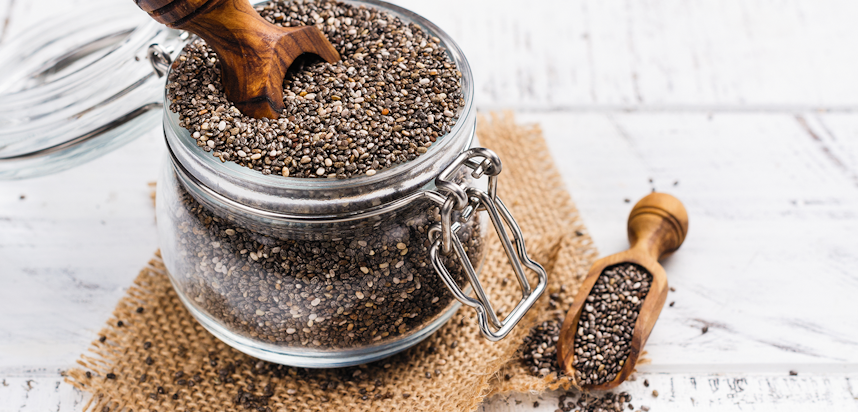
Peanuts
Peanuts are the most like-for-like substitute to (Tree) Nuts, both in texture and flavour. However, Peanuts are also among the 14 major food allergens.
Chia seeds, pumpkin seeds, flax seeds and sesame seeds
Seeds are close to Nuts in nutritional value, as well as flavour and texture. Toasted seeds can replace Nuts in snack mixes, salads and baked goods, as well as any recipe which requires Nuts to be sprinkled in or over the dish.
Oats
Oats toasted with butter can have a creamy, nutty flavour and so make a good alternative to almond and cashew butters when making smoothies, baked goods and sauces.
Peas and chickpeas
Peas and chickpeas are legumes (like Peanuts) - they can both be dried or roasted to create a nut-like snack.
Tiger nuts
Tiger nuts are not at a nut at all, but a type of edible tuber that can be eaten raw or cooked, and have a sweet, nutty flavour. They make a great alternative to nut milks and nut flours, and can also be used as ingredient for cooking or baking.
Read our deep dive into a (Tree) Nut allergy here.
Peanuts
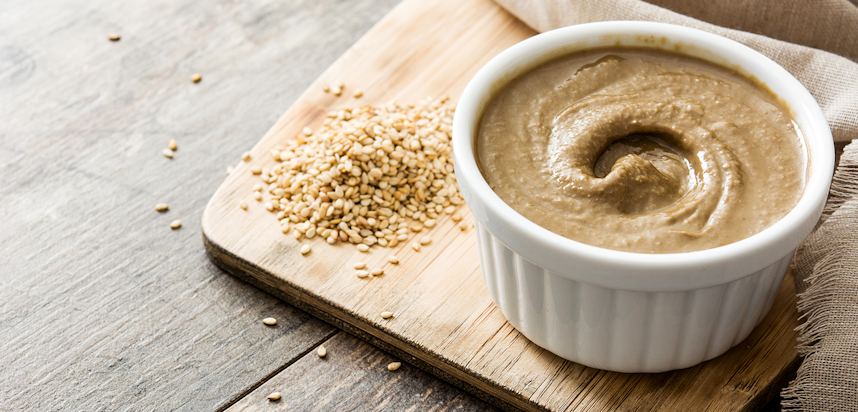
(Tree) Nuts
The obvious alternative to Peanuts are (Tree) Nuts such as cashews, almonds and macadamia nuts. Just because a person has a Peanut allergy does not mean that they have a (Tree) Nut allergy, but care should still be taken, as there can be cross-reactivity.
Tahini
Made primarily from toasted and ground Sesame seeds, tahini is a paste that can be used as an alternative to peanut butter in sauces, dressings and sandwich fillings.
Tiger nuts
Tiger nuts are an edible tuber that can be eaten raw, cooked or made into flour or milk. Their creaminess and nutty flavour make them a great substitute for Peanuts in baked goods and sauces.
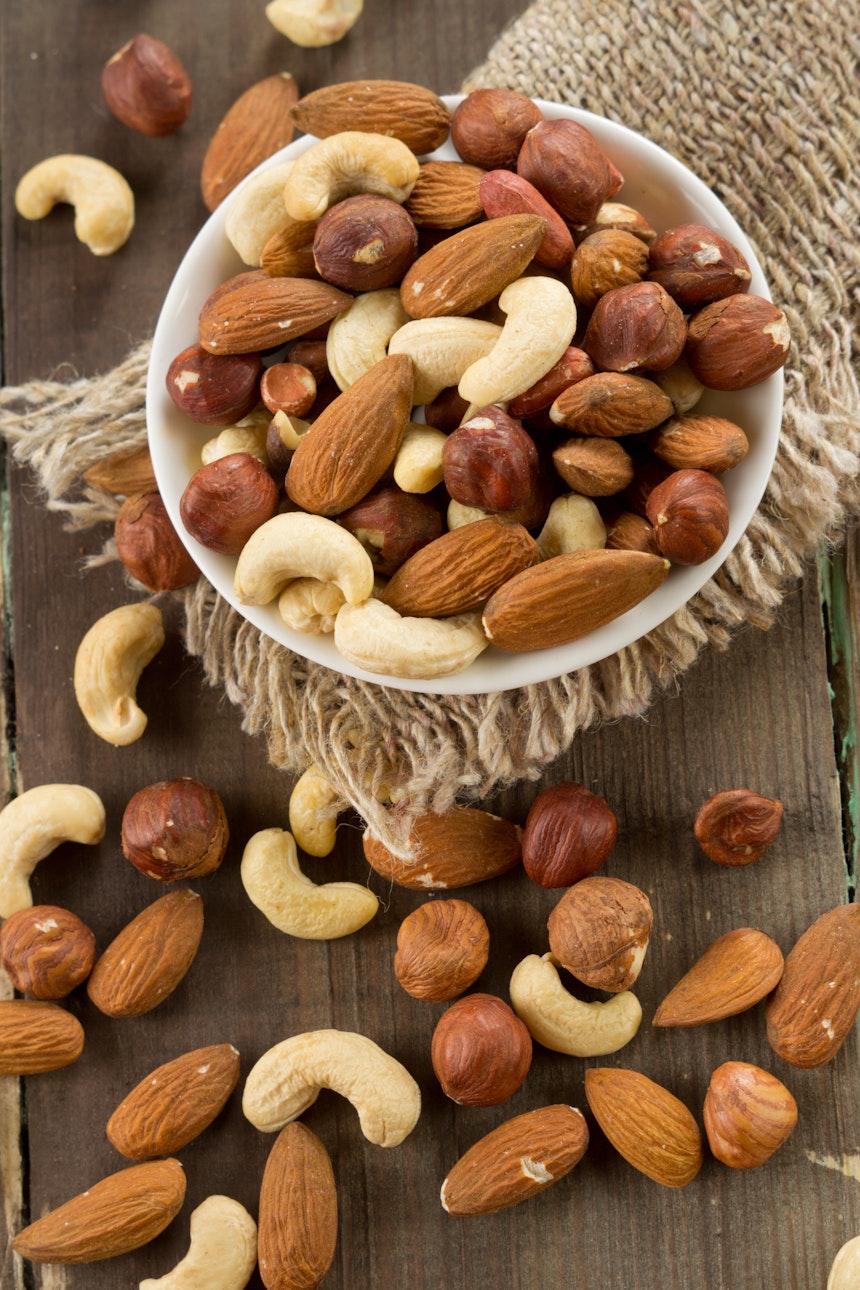
Read our deep dive into a Peanut allergy here.
Sesame
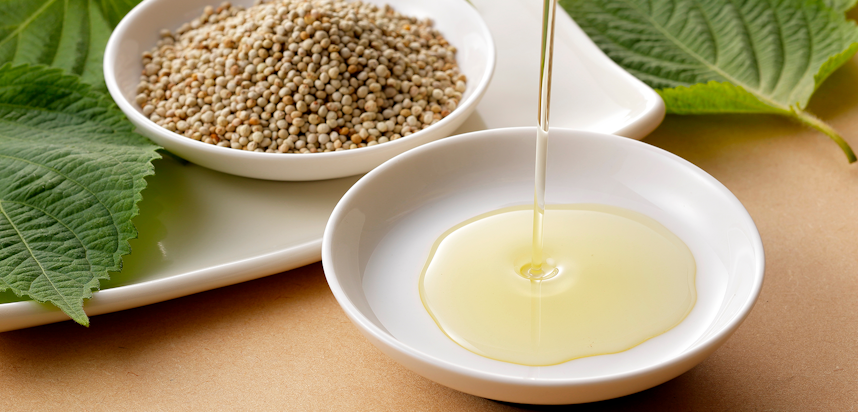
Cashew or almond butter
Because of their similar consistency and flavour profile to mashed or crushed Sesame seeds, cashew and almond butter can be used as an alternative when making foods such as hummus or tahini.
How do I know if there are allergens in a product?
It couldn’t be easier to find out if a product on Erudus contains any of the 14 major food allergens. Simply enter the product into our Nutritional & Allergen Data Search and one click will let you know the full allergen content, as well as information on whether it is suitable for diets such as Veganism, and even its nutritional Reference Intake.
Sunflower seeds, pumpkin seeds, poppy seeds and chia seeds
Sunflower, pumpkin, poppy and chia seeds can be used to sprinkle into salads, over bread or cereals and in baked goods in place of Sesame seeds.
Olive oil and avocado oil
Both olive and avocado oils are good alternatives to sesame oil.
Perilla
Perilla oil is a nutty, plant-based oil that tastes similar to Sesame oil and can be used in its place when cooking and frying.
Read our deep dive into a Sesame allergy here.
Soya
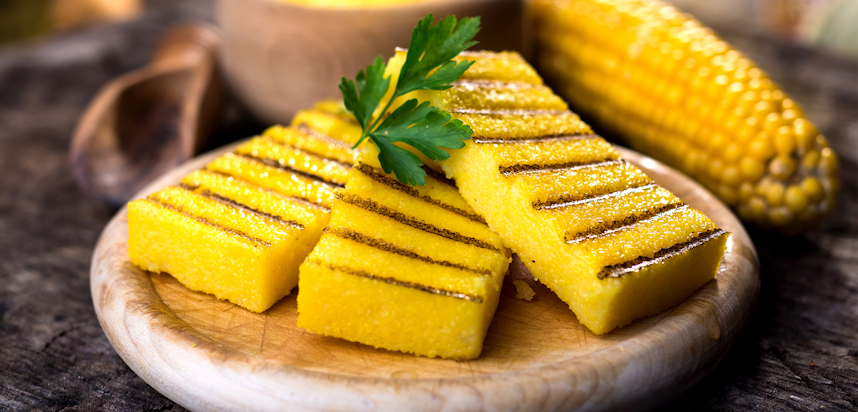
Almond milk, rice milk and oat milk
When using soy milk as a non-dairy alternative to animal milk, almond milk, rice milk and oat milk are all good substitutes.
Green peas
Green peas can be used in place of edamame beans.
Coconut aminos
Coconut aminos is a sauce made from fermented coconut sap, and is considered to be one of the best alternatives to soy sauce.
Polenta
Also known as boiled cornmeal, polenta can be cooked to have a similar texture to tofu, and like tofu, has a delicate flavour.
Chickpea flour
For recipes that require soya flour, chickpea flour is a good gluten-free alternative.
Read our deep dive into a Soya allergy here.
Sulphur Dioxide

Whilst there have been several experimentations with sulphur dioxide alternatives (ascorbic acid among them) there are no known alternatives to Sulphur Dioxide, though there are low-Sulphite and Sulphite-free beers and wines on the market.
Read our deep dive into a Sulphur Dioxide allergy here.
You may also be interested in…


You may also be interested in…
What to do if your Customer has an Allergic Reaction: Full Guide
ReadYou may also be interested in…


You may also be interested in…
